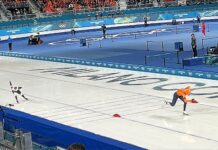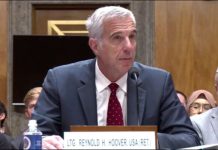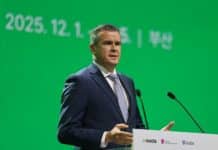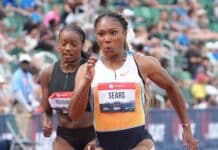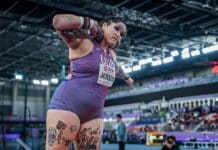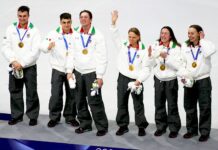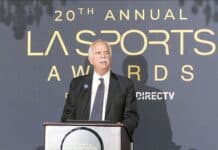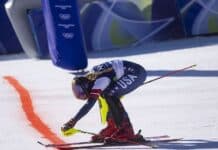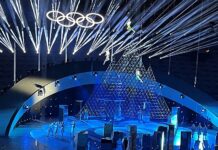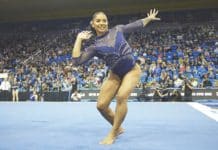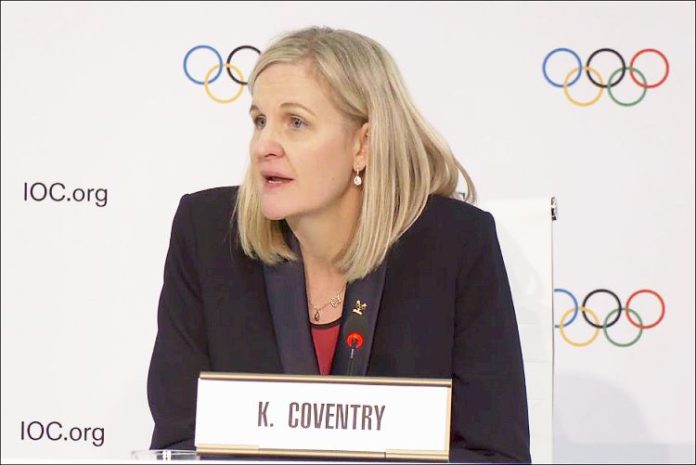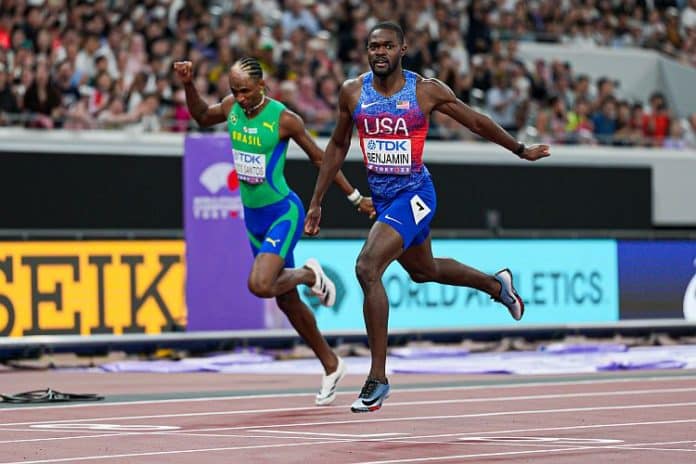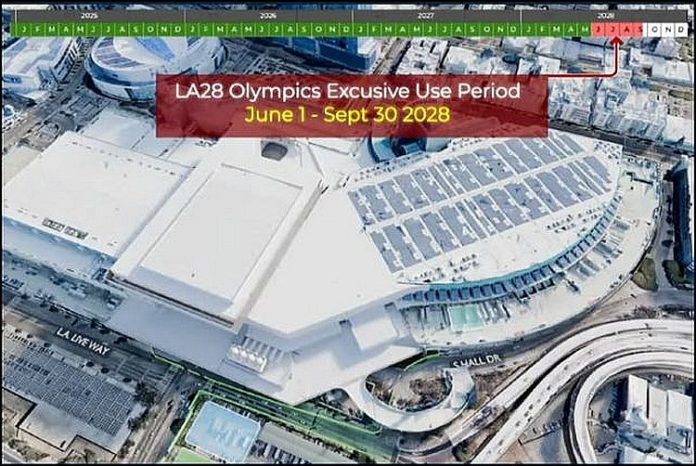★ The Sports Examiner: Chronicling the key competitive, economic and political forces shaping elite sport and the Olympic Movement.★
★ To get the daily Sports Examiner Recap by e-mail: sign up here! ★
≡ IOC EXECUTIVE BOARD ≡
“Every single Executive Board member was taken back and saddened, really, when you look at the world and what is happening today, by the images that we see daily. And it was very empowering, actually, for us to sit around the table together and to discuss, because we all realize, now more than ever, our movement – the sports movement – has to showcase the good that is in humanity.
“And we believe now, more than ever, we need to re-affirm our commitment to peace and to remaining a beacon of hope, remaining a platform for athletes from around to be able to live out their Olympic dreams.
“And for athletes to be able to help change perceptions. Today, perceptions are mystified out there. Perceptions are seen as truths. Sometimes they are and sometimes they are misleading.”
That was International Olympic Committee President Kirsty Coventry (ZIM), speaking through a bad cough, at Friday’s news conference following the IOC Executive Board meeting in Milan (ITA). Seeing the continuing, violent, international conflicts on three continents, the IOC issued a statement, including:
● “The IOC is concerned by the disruption of competitions across the world, the restriction of access to host countries for athletes, and the boycotting and cancellation of competitions due to political tensions. These actions deprive athletes of their right to compete peacefully and prevent the Olympic Movement from showing the power of sport.”
● “As part of the IOC’s ‘Fit for the Future’ process, the IOC EB decided today to set up a Working Group on the Protection of the Fundamental Principles of Olympism. This is aimed at ensuring that the IOC, the Olympic Games and sport remain politically neutral and can uphold their mission to unite the world in peaceful competition.”
● “Athletes have an incredible opportunity to showcase the Olympic values and play the role of peace ambassadors in line with the Fundamental Principles of Olympism.”
No members of the working group were named, but this will undoubtedly continue to expand involvement opportunities for IOC members, a promise that Coventry has made, and would be a potentially significant platform for some of the members who are also currently, or recently, part of their national governments.
¶
The more practical outcomes of the Executive Board meeting included the future of Russian and Belarusian athletes for the 2026 Olympic Winter Games:
● Coventry announced that the “AIN” neutral-athlete program used for Paris 2024 will be continued for Milan Cortina 2026, allowing individual athletes but no teams and disallowing any Russian or Belarusian athlete “who actively support the war.”
A review panel of IOC Vice President Nicole Hoevertsz (ARU), IOC Athletes Commission member Pau Gasol (ESP) and International Gymnastics Federation President Morinaru Watanabe (JPN) will review each application, with Hoevertsz and Gasol having served on the Paris 2024 panel.
IOC Sports Director Pierre Ducrey (SUI) noted that opening for AIN participation are so far limited to skating event and ski mountaineering, and possibly skiing. The federations for biathlon, bobsled & skeleton, curling, ice hockey and luge do not allow participation by “neutrals.”
● For Los Angeles 2028, the weightlifting program weight classes were expanded from a total of 10 to 12 – with the same 120-athlete quota – to better match up with the weight classes at the IWF World Championships.
● For French Alps 2030, the decisions on disciplines (within sports) will be taken in December, except for Nordic Combined and Snowboard Parallel Giant Slalom, with those disciplines to be discussed after the Milan Cortina 2026 Winter Games.
Coventry explained that the working group on “protection of the female category” – whose members have not been named to protect outside influence – has met and that there is no deadline for a report, since one of the needs is to be able to talk to all parties who are impacted, including those who may be removed from women’s competitions.
She also noted that the goal is not a hard-and-fast set of rules:
“What I’ve asked the working group, in relation with all the International Federations. Is to try and find consensus. Now that could mean different things; I’ve not boxed them in to say, ‘I want consensus in a policy,’ or ‘I want consensus in a framework.’ I’ve left it open for the working group to identify in what way we could find consensus.
“We know that in some sports, it’s really not a very big topic, but in other sports, there’s been a lot done, in other sports, less done. At the end of the day, we want there to be fairness and we want the female category to be protected.”
She was asked about security for the Milan Cortina Games, notably about Israeli athletes with continuing protests, and Coventry indicated she had full confidence in the security planning.
The IOC also approved medal re-allocations in four events impacted by the doping disqualification of Russian biathlete Evgeny Ustyugov in the Winter Games of 2010 and 2014.
The Executive Board will meet one more time in 2025, in December.
¶
★ Receive our exclusive, weekday TSX Recap by e-mail by clicking here.
★ Sign up a friend to receive the TSX Recap by clicking here.
★ Please consider a donation here to keep this site going.
For our updated, 699-event International Sports Calendar for 2025, 2026 and beyond, by date and by sport, click here!







